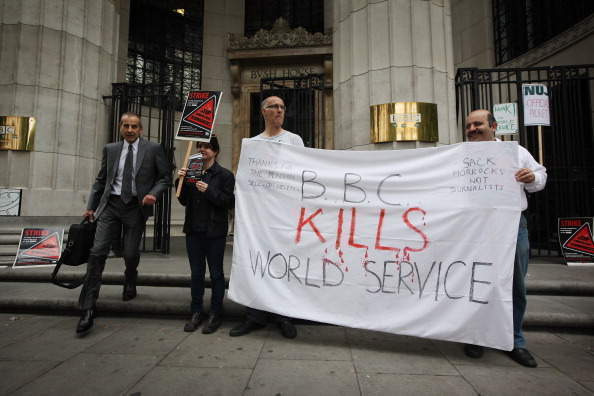
Recently you may have spotted posters with slogans like ‘there are two sides to every story’ and ‘don’t believe everything you read’. If you look closely, in the bottom corner it will have a ‘RT’ logo.
The branding is fairly subtle, and based on its messaging you could be forgiven for assuming “RT” was an independent, left wing, anti establishment publisher, however, RT stands for Russia Today; it is a Kremlin – funded broadcaster that has seen its budget reportedly increased by over 40% in recent years (although the exchange rate between the rouble and sterling meakes this less significant than it might otherwise seem). It operates in four, soon to be six languages and has a reach of 700 million in 100 countries.
It claims to be like the BBC World Service and the French equivalent Agence-France– Presse, both of which operate under transparent editorial structures, but last year Ofcom ruled that RT had failed to act impartially in its coverage of the crisis in Ukraine.
RT argued that they were being held to a higher standard than other British broadcasters, but it is not the first time RT has been at the centre of controversy here in the UK. Sara Firth, a British reporter at RT walked out on her job last summer in a row over the downing of Malaysia Airlines Flight MH17. Upon resigning Firth said it was the “most shockingly obvious misinformation and it got to the point where [she] couldn’t defend it anymore.” The framing of the various incidents over the past year including flight MH17 flight has brought the reporting to the attention of politicians, many of whom claim it promotes twisted theories, although Ofcom ruled that RT’s coverage of the crash was above board.
This of comes at a time when the BBC World Service seems to be struggling with a strategy for the future and has seen cuts of 16% following the coalition’s decision to strip the World Service of government funding, leaving it reliant on the licence fee. Since then, staffing has been reduced by a fifth and the number of languages it operates in cut from 43 to 28.
Once described by Kofi Annan, former boss of the UN as “perhaps the greatest gift to the world” the World Service is one of the most popular and best known of all international broadcasters. However, following cuts the BBC’s own ‘Corporation Future News’ report warned of a loss of ‘soft power’ and a threat to the independent and reliable world news as big state sponsored rivals such as RT, China Central Television and al–Jazeera beef up their spending, although RT have rebutted these claims.
Peter Horrocks, ex-World Service Chief has said the World Service is being ‘’outgunned” and believes the UK is ceding its position to “Kremlin propaganda”. Similarly, John Whittingdale MP and Chair of the Commons Culture, Media and Sport Select Committee said in December 2014 that Britain was “losing the information war”, and ex-ITN CEO, Professor Stewart Purvis, claimed competitors of the World Service are “proxies for their governments” and stressed that Britain is being vastly outspent.
Horrocks suggested Britain should look at more funding to counter growing competition and suggested supplementary funding from the Government to retain its current influence overseas, whilst others have discussed possible reductions in to the £600 million the Government spends on free TV licenses for the elderly to create more cash for the Service.
This all poses difficult questions for policy makers, especially at a time of great strains on budgets here in Britain, but it could be that by not investing more now, we will pay a heavy price in years to come.




